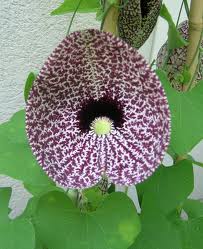 According to the AFP, this is the case with aristolochic acid, aka AA, which is found naturally in Aristolochia plants and is used as an ingredient in many natural Asian remedies for aiding weight loss, easing joint pain and improving stomach ailments. Even though the herb has been touted around the world for thousands of years, recent research has linked it to more than half of all cases of urinary tract cancer in Taiwan where use of the product is particularly widespread.
According to the AFP, this is the case with aristolochic acid, aka AA, which is found naturally in Aristolochia plants and is used as an ingredient in many natural Asian remedies for aiding weight loss, easing joint pain and improving stomach ailments. Even though the herb has been touted around the world for thousands of years, recent research has linked it to more than half of all cases of urinary tract cancer in Taiwan where use of the product is particularly widespread.
The research, which was published in the Proceedings of the Natural Academy of Sciences, was based on 151 patients with urinary tract cancer, of whom 60 percent showed specific mutations linked to the herbal remedy. In particular, scientists found that AA forms a unique kind of lesion in the renal cortex after it is ingested and causes a mutation in the TP53 tumor suppressing gene.
"It is a rare tumor and Taiwan has the highest incidence of any country in the world," said lead author Arthur Grollman of the department of pharmacological sciences at Stony Brook University in New York.
A previous study found that about one-third of the population of Taiwan has used AA, and rates of urinary tract and kidney cancer there are about four times higher than in Western nations where use is less common.
"The fact that Taiwan had the highest incidence both of cancer and this renal disease -- that was our clue that something was going on there," Grollman told the AFP.
Even though the ingredient has been used for thousands of years, it is only recently that researchers have been able to link it to disease. For instance, AA is now known to have been the cause of Balkan endemic nephropathy which struck rural farmers in Bosniz and Herzegovina, Bulgaria, Croatia, Romania and Serbia in 1956. Apparently, they were baking seeds from a week known as Aristolochia clematitis in their bread.
In the 1990's, a group of Belgian women reported sudden late stage kidney failure after taking a weight loss drug that contained AA.
Unfortunately, even though many countries are now taking steps to warn about the risks of AA, it's difficult to control the products which are mostly made in China and distributed throughout the world via the Internet. It is also sold under a variety of names, such as birthwort, pipevines or Dutchman's pipes.
"Many countries ban it but it is always available on the Internet. And in fact you can't ban it in the United States. You can only ban its importation," Grollman told the AFP.
Even though AA has been used in every culture in the world for centuries, consumers need to beware.
"Natural is not necessarily safe," Grollman said, "nor is long term usage."
